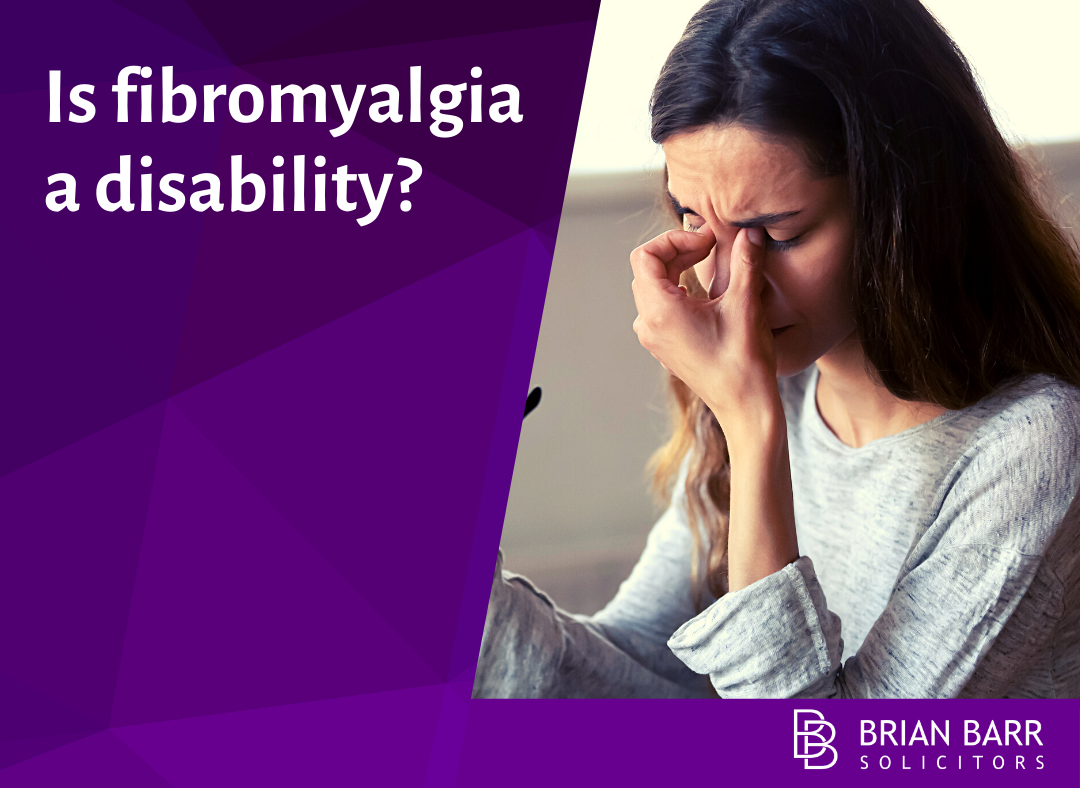Is Fibromyalgia a disability?
If you have a physical or mental impairment that has a ‘substantial’ and ‘long-term’ negative effect on your ability to do normal daily activities, then you are classed as being disabled in the UK. The definition of being disabled is quite wide and includes various conditions including many chronic fatigue syndromes and invisible disabilities such as fibromyalgia.
Fibromyalgia is a pain syndrome of chronic widespread musculoskeletal pain and fatigue. It specifically means pain in the muscles, ligaments and tendons, generally all the softer, more fibrous tissues in the body, and many people suffering with fibromyalgia have related conditions such as chronic pain syndrome.
Fibromyalgia affects everyone in different ways. The condition is very personal and even in support groups members will suffer differing degrees of the syndrome and may experience only a few shared symptoms or the same symptoms at different levels and intensities.
Overall fibromyalgia is recognised as a chronic condition, but the symptoms of the condition may come in waves and there may be periods which are relatively pain free and others which can leave the individual with the syndrome unable to leave bed. The impact that fibromyalgia has on daily activities such as working a full-time job is highly dependent upon the individual in question. Many individuals with fibromyalgia are able to work comfortably, although they may need time off for additional medical appointments, others are not in position to hold down a regular job.
Fibromyalgia is recognised as a disabling condition and has the same life-impacting possibilities as conditions such as rheumatoid arthritis. Fortunately there has been an increase in awareness surrounding the condition and many people who previously may have felt unable to work have since found themselves in a position to do so thanks to increased awareness in the workplace and understanding from employers and colleagues.
Welfare benefits and fibromyalgia
The Department for Work and Pensions (DWP) recognises fibromyalgia as a real and potentially significantly disabling condition, meaning that if you have been diagnosed with fibromyalgia and have extra care needs or limited capability for work because of your condition, you may be entitled to a number of welfare benefits including:
· Attendance Allowance (AA),
· Disability Living Allowance (DLA),
· Personal Independence Payment (PIP), and
· Employment and Support Allowance (ESA).
Eligibility is not based on the condition you have, but on the amount of help you as an individual need as a result of how your condition affects you. Many people with fibromyalgia continue to work full or part time. However the chronic pain and fatigue associated with fibromyalgia often make working very difficult, therefore it is good to know you may be entitled to various benefits and support.
It remains difficult to predict the prognosis of fibromyalgia on an individual basis because so many factors, physical, psychological and even environmental play a role in the development of the condition. But by self-managing fibromyalgia pain and controlling daily stress most people with fibromyalgia can make modifications and do almost anything they choose to do. The UK Government remains committed to enabling people to remain in or return to work where possible and provide additional support when required. However, the Government also recognises that not every person with a disability will be able to work, so the safeguard of state sickness and incapacity benefits continues to exist should you need it.
If you are suffering from fibromyalgia, CRPS, or any chronic pain condition as a result of an accident that was not your fault, and even if you have an existing claim, get in touch with Brian Barr Solicitors to see if we can assist. It is simple and hassle free to move your claim to Brian Barr Solicitors who are experts in dealing with chronic pain litigation. Call us today on 0161 737 9248 or visit our website to find out more.
We do not endorse any research, studies or sources mentioned within our blogs and comments. The blog is for information purposes only as we are not medical professionals. We do not endorse any medical advice provided and would strongly recommend anyone seeking medical advice to contact their local healthcare provider before any changes to treatment and / or management of your condition is undertaken.

